Zoomcar is a ‘selfie brand’. Our users love to pose with the cars: Greg Moran
Shrugging off the disruptions of last year, businesses and agencies are looking for a strong revival in 2021. Adgully – as part of our annual TRENDING NOW endeavour – has been presenting the strategies and views of a cross-section of industry leaders as they go about reclaiming lost time and market opportunities and build for a stronger future, armed with the lessons of 2020.
Also read: “Constant deliberate innovation focus is a critical need for businesses today”
While the global pandemic has bought economies to a halt and massively disrupted businesses, it has also fuelled start-up dreams and we even saw several Indian start-ups achieve Unicorn status during the pandemic period. The times have never been better for the budding entrepreneurs to give wings to their start-up dreams.
One such start-up is Zoomcar. Founded in 2013 by David Back and Greg Moran, Zoomcar, is an Indian self-drive car rental company, headquartered in Bangalore, India.
In conversation with Adgully, Greg Moran, CEO, and Co-Founder Zoomcar, speaks about what motivated him to choose India as a market for starting his venture, how digital has helped him to grow his business and much more.
Please take us through your journey as an entrepreneur. What motivated you to establish your start-up? What were you doing prior to turning an entrepreneur?
I have always been passionate about sustainability and shared model for sustainable economic development. While working in the clean technology and infrastructure disciplines for an investment bank, I witnessed first-hand the opportunities that existed in working for environmentally sustainable solutions in India. Further exploration revealed the challenges in urban transportation, namely lack of infrastructure that can cushion the hike in personal vehicles.
Realising the toll it was taking on India’s environment and a complete lack of self-drive model – and not just chauffeur-driven car rentals or cab aggregators – led me to spearhead the launch of Zoomcar. I have always been fascinated with India as a market. As a fast-growing economy, it provides entrepreneurs with amazing opportunities to not only scale up their ventures, but also deliver a social impact through unique, and oftentimes tech-enabled, service offerings.
The opportunities in India, I realized, would only be compounded over the years, and thus, it became imperative for me to be part of India’s growth story by introducing sustainable self-drive models that cater to the challenges in mobility at large. The business model of Zoomcar not only revolves around sustainability, but also caters to the market need for convenient self-drive mobility. There is always a risk whenever a new category is launched. However, at Zoomcar, we believe that we have succeeded in carving a niche for this disruptive offering. We now see several start-ups and cab aggregators follow our lead and venture into self-drive mobility, which only comes as a validation for what we had set out to achieve.
What need gap did you want to fulfil with your start-up? What is the core business proposition?
We were thinking about mobility and transportation solutions. We started looking at the market more carefully and realised that car ownership levels were incredibly low at 2 or 3 per cent. We saw the notion of car sharing as really a great opportunity because ownership levels were jut not going to
support. We looked at car sharing as a great entry point with self-drive. When we started to look at it more closely in 2011-2012, I spent three months on the ground here roaming around India in 25 cities, 12 states, and realised that it was a total white space. No one was doing anything in the market, everything was offline, all un-organised, all unstructured, no websites, no apps.
So, we wanted to bring order to that chaos through a common technology platform and a brand which people could identify across the country. We ended up raising a bit of capital in late 2012. I dropped out of business school and moved to Bangalore, from there the rest was history.
Zoomcar operates a short-term rental and a long-term subscription model. The former operates on an hourly and daily basis with prices starting at Rs 50/hr and ranging up to Rs 250/hr depending on the vehicle type. Long-term subscription starts at Rs 15K per month and runs up to Rs 45K depending on the vehicle type.
What were the challenges that you faced in your start-up journey and how did you overcome them?
The personal mobility segment in India is fast growing and we saw it to be a segment that needed the most disruption, but the journey has most certainly has had its challenges. To start car rentals, Zoomcar first had to get a license, but we could not get one. This was primarily because the Contract Carriage Permit needed us to have yellow board license plate vehicles. As Zoomcar did not have a fleet and we needed to tie up with an owner of a fleet soon. By this time, we had already raised seed funding and had tied up with several car makers. I had put in all my savings into Zoomcar, and it was suddenly a make-or-break situation. The only way out was to work with an existing player that already had a license. At that point in time, there were five of those (in Bengaluru) and four rejected Zoomcar outright, and it was down to the wire as we met with Ramesh Tours and Travels. If that did not work, it meant going back to the US. I did not book a return ticket (to India). I had one final meeting with Ramesh. We agreed on the terms and worked out a licensing agreement. I went back to the US the next day, but I could come back and that was a relief. It was extremely nerve wracking and very stressful because it would have been awful to return money to investors before starting a business.
Over the past seven years, while Zoomcar has continued to rent out cars on an hourly basis, it has also brought in several changes. Today, one can have a car delivered to their location. Zoomcar runs on a different model, and the focus is on customers who want the freedom of having a car any time they require, for a longer duration. The only way we have been able to stay ahead of the curve is by keeping our laser-sharp focus on the vehicle rental space and business. Whether it is cars or two-wheelers, we believe that in personal mobility there is a shift from ownership. That will not move towards the taxi industry, but more towards self-drive or rentals.
What were the clearances that you required for your venture from various authorities?
There is always a learning curve involved when one is introducing a new category. Car rentals were completely unheard-of category when we commenced operations. I remember how cumbersome a task it was to comply with regulations for number plates of the fleet, simply because of the
unprecedented opportunity. It has been a learning experience to educate and sensitise the authorities and our customers alike, about the perks of car rentals.
How is digital helping you further your business?
We are the market leader in the self-drive space with over 10,000 cars in the fleet. Zoomcar’s organic growth has been phenomenal. We have seen massive growth in terms of scale towards the second of 2018 and 2019. The amount of user-generated content we receive is unprecedented. We are a performance marketing-focused brand and the majority of our marketing team consists of performance marketers. We have a CRM team that helps in increasing repeat transactions and the frequency of transactions. We have always operated in a cost to income ratio, which is 6 per cent.
When Zoomcar got deployed on roads, the sticker with our brand name itself was the biggest outdoor campaign. We got a huge network growth through word of mouth, that has helped us in getting organic traffic, which is around 50-55 per cent. We are also focused on curated content and are associated with new-age content platforms like Filter Copy to create campaigns with a focus on awareness. We are also associated with TLC channel. On an average, we receive more than 60,000 high-quality user-generated content. Our customers pose for photographs with Zoomcars, surprisingly with doors open, because that is where the logos are. This just signifies the brand resonance we have achieved in the last seven years. Many brands spend a huge amount on marketing to attract influencers and get user-generated content, but Zoomcar has grown organically. Zoomcar is a ‘selfie brand’. Our users love to pose with the cars (which they book through our app) and the Zoomcar logo in the background. A testimony of this is the fact if you would do a quick dipstick on us on Instagram and search for #Zoomcar, you would see tons of high quality user generated content across different formats, but primarily selfies and videos.
On an average we see almost 15K to 20K user generated selfies and videos across organically every month. This validates the fact that with Zoomcar, our users feel empowered, independent, and liberated! We hardly spend any money on any sort of influencer activity as our users become a natural set of micro-influencers for the FTUs (first time users). Our Instagram base grew by 100% organically. One of the prime reasons for Instagram being our cornerstone of brand strategy is that our core target audience (Age: 21 to 28 ) are Instagram natives and don’t shy away from showing their passion for fashion, food and travel and we get a solid leverage out of this. Moreover, all organic and satisfied customer selfies on Instagram further signify that they not only had a great in-trip experience while using our service, but we have actually been able to wow our customers who we proudly refer to as ‘Zoomers’.
What were your key learnings from 2020? How do you see the start-up ecosystem progressing in 2021?
COVID-19 has changed the dynamics of our economy indeed. What used to be the norm till last year may well become obsolete in the coming weeks. Therefore, each industry needs to adapt itself to the new normal. The car rental industry, to that end, is well-equipped and prepared to serve its
customers. We are already seeing a 400% rise in demand and we expect this to settle down at 200-300% over the next few months. People are now looking for shorter term mobility access as opposed to a long-term investment. We have seen a rise in demand for cars for personal work and emergency use cases. Rentals for intercity travel are up and a lot of people are opting for one-way travel. The notion of owning a car amidst such an intensifying emphasis on social distance may have taken the backseat. Still, the necessity of a mobility service remains as relevant as before.
As people would avoid public transport to keep themselves safe from contracting the virus, the need for rental cars will only go up. We are looking at various car subscription models to serve the needs of the customers. We also see more demand for in-city trips, compared to outstation ones and a strong focus on shorter term subscriptions. Our focus will be to diversify on this front and ensure we are covering all cities.
With COVID-19 forcing operations to go entirely digital, Zoomcar is leveraging technology such as AI and IoT to offer an impeccable experience to its customers. We also have key less entry, which minimise human contact and curb transmission of the virus. Every car is also thoroughly sanitized before and after each drive.
With deep-rooted technology models, Zoomcar has tweaked its mobile app to allow customers to reach out at any time in case of a query through emails, messages and chatbots. The platform’s entirely digital payment gateway also makes for a smooth and hassle-free experience. Vehicle monitoring and predictive analysis will help us with data like speed, distance, RPM, clutch, break and time, that will be used to calculate the driver score, which encourages customers to drive cautiously. Not only does it increase safety of the customers, but will also help maintain the car in a better condition. A close eye will be kept on engine temperature and coolant level to predict engine seizures before it happens and guide the customers safely to a stop in case of any such situation. By prioritising safety, hygiene and customer experience with technology at the core, Zoomcar is looking to make its cars future-ready and COVID-19 safe.
One of our focus areas has been increasing this exponentially by adding more and more vehicle models, which will be offered on a subscription basis. We are also aggressively partnering the major automobile OEMs to offer a subscription as an alternative to vehicle ownership.
What would be your message for the budding entrepreneurs?
I would only like to say that in the start-up world, once you get a little bit of traction and you’ve secured a couple of early believers, you only need to consistently focus on two things – executing at an efficient pace, and making sure that customer experience is rock-solid. If you get these two things right, you can go far in your business.
For more updates & collaboration, connect us on :


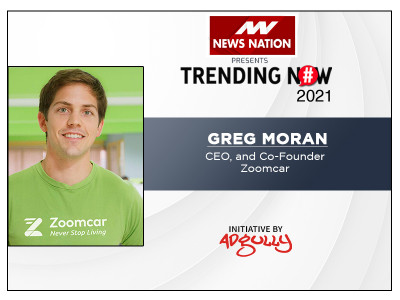





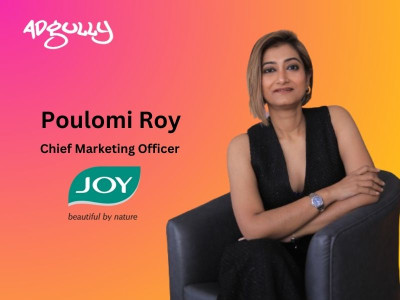
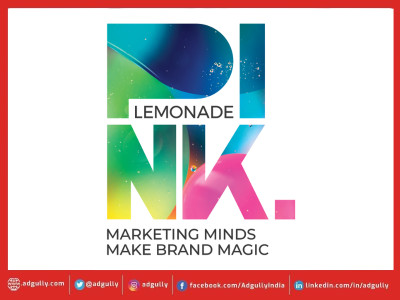

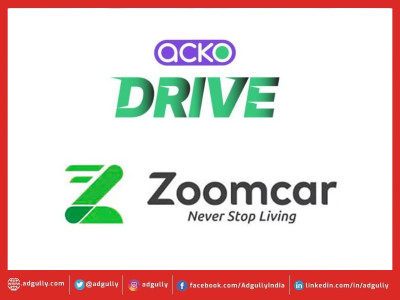

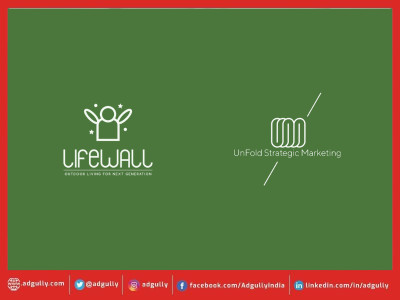
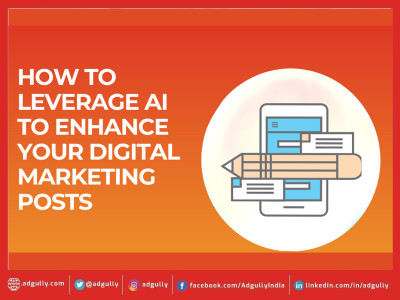


Share
Facebook
YouTube
Tweet
Twitter
LinkedIn